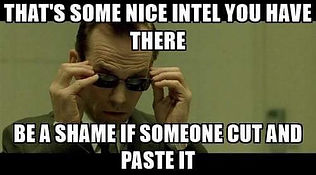SECONDARY RESEARCH

Best put by Wikipedia (wikipedia.org) / Ithaca College (library.ithaca.edu), secondary research
" involves the summary, collation and/or synthesis of existing research."
Basically, this means we use research others have done and data others have collected for our own purposes. Secondary research is complementary to primary research, and can not only be used to learn more about a topic, but also back up and/or justify a claim/conclusion that has developed from primary research.
Secondary research normally takes place simultaneously with primary, because of its complementary nature. It is not 'less important'.
-
Data gathering agencies (quantitative)
Sometimes, data that is too large, privately collected, or personal may be difficult to collect, especially for researchers with low budgets.
A way to still get hold of this data is to source it from a data gathering agency. This can be a government division.
For example, the Highways Department will be able to tell you about the number of roads in a particular location. Finding this out yourself is extremely difficult.
-
Internet searches (qualitative and quantitative)
As the most powerful search tool ever created, the internet is a very good source of information. However, it is difficult to identify which websites are reliable and which are not.
Illustrative example: internet searches
We would like to find 5 sci-fi movies that we can try to recreate.
How to: write search terms
We want to find a sci-fi movie. So let's put that in.
Great. That's a start.
We realize - not all sci-fi movies are well made. If we want to learn from the best, let's specify that.
Is there a source that we know is credible? If so, let's put that in.
We're getting close! One last thing: if we're making a short film, we should find out about short films; they are very different to full-length feature films!
And now we have a very narrowed-down search term which will yield far more relevant results.
The first result is far more relevant than what would have showed up if we had just searched 'sci fi movies'.
Our 5 titles can now be:
-
Beneath the Surface (2018)
-
Star Wars: Wraith Squadron (2017)
-
Inertia (2017)
-
Planet X (2015)
-
Robo J3 (2017)
Identify reliable websites
-
Established institution (Wikipedia is not a bad source of information; you just have to be aware that it is editable by anyone.)
-
No clickbait, advertisements
-
Author's name and date visible
-
No profit-making practices
-
Site design is good
-
Up-to-date
-
No bias
Useful websites include: IMDB, Rotten Tomatoes, Explora, and EBSCOhost.
-
Books (qualitative and quantitative)
Although some are
-
Difficult to sift through
-
More difficult to access
-
More time-consuming
-
Hard to search through (no Ctrl+F here!)
-
Outdated
-
And maybe more boring,
Books are still an excellent source of information.
This is because
-
If you find the right book, it has relevant information, including quantitative and qualitative information.
-
Printing costs money. Publishers only print if it is worthwhile.
-
Authors have a reputation, books have a structure.
-
Many people (like editors, writers, publishers) have seen the book through its every stage. This means any errors would have been identified and appropriate action would have been taken.
-
It takes a long time to write a book. Only those committed will do so.
-
Academic research (qualitative and quantitative)
This is like the ease of access of the Internet merged with the reliability of a book.
Academic research sources (like Explora and EBSCOhost) offer results much like search engines (such as Google) do; in the form of a list of clickable websites. However, the key difference is that this material has been checked by someone for reliability - these are sources you can trust more.
But - this means that someone is doing some of the work for you - and getting paid for it. Academic research engines are not free.
----
Make sure you always site your sources when doing secondary research, especially when on the web.
Note these down in a properly formatted bibliography / list of references.
A good format is the APA Style® which
" calls for a list of references instead of a bibliography"
and
"[requires] all references cited [to] be listed alphabetically by first author's last name [...] and that all references listed must be cited within the text".
(Source: www.apastyle.org)
More information here.
Never copy-and-paste. Not only will this cause everything else you have written to be null and void, but will also make you guilty of plagiarism.
Source: Collins English Dictionary








